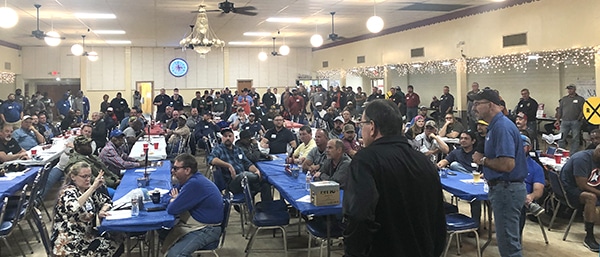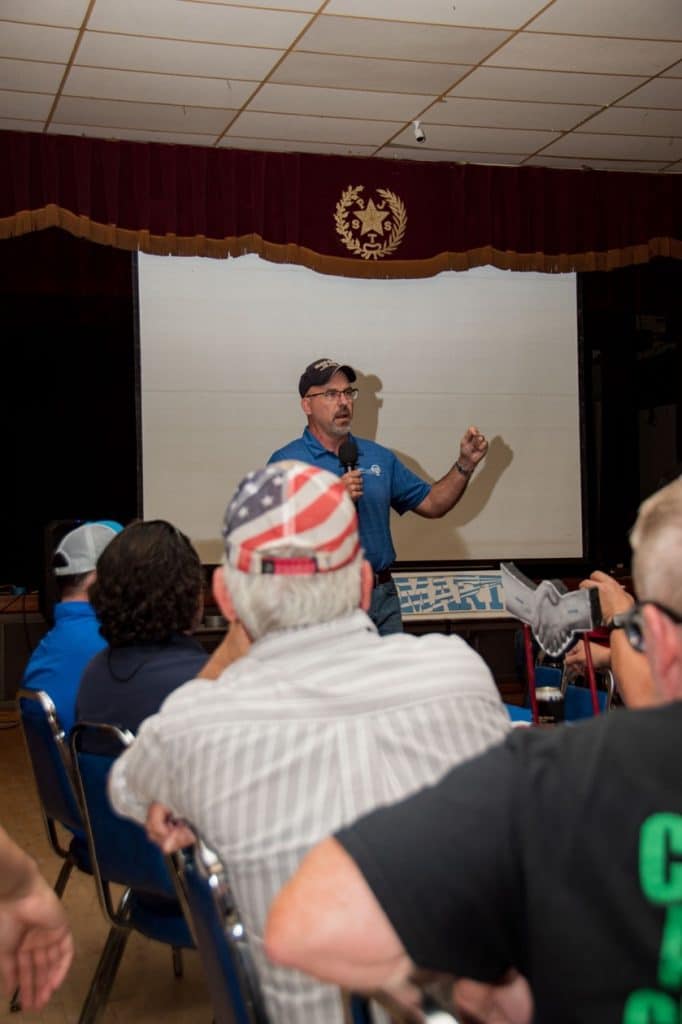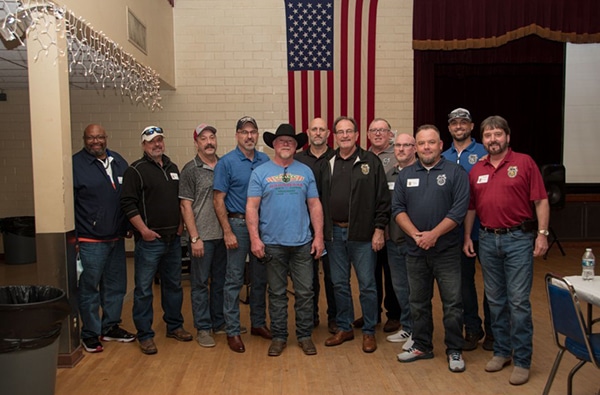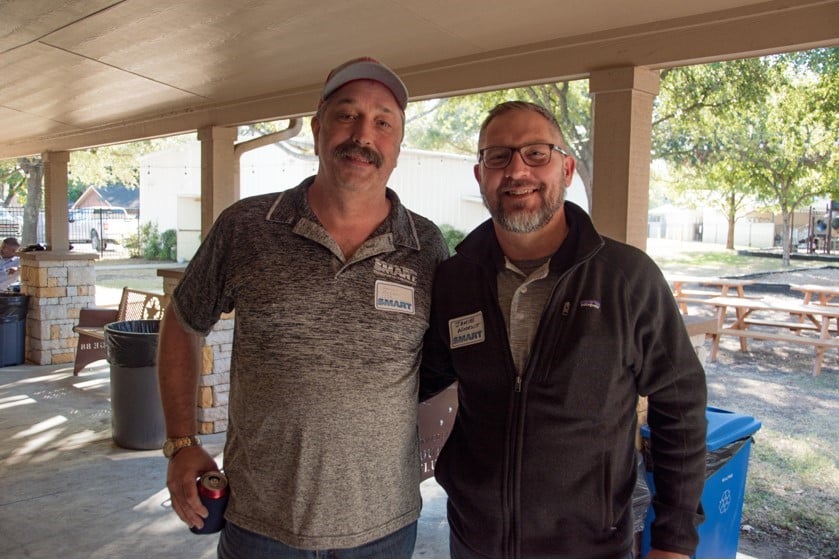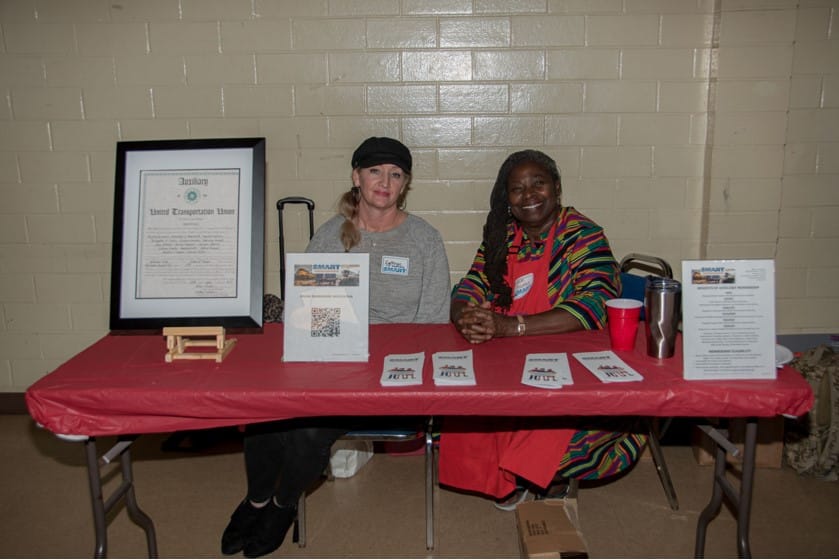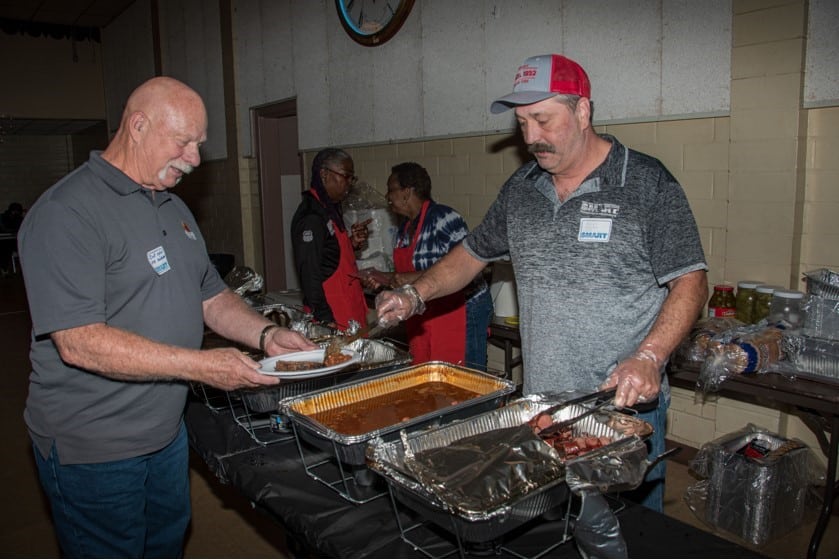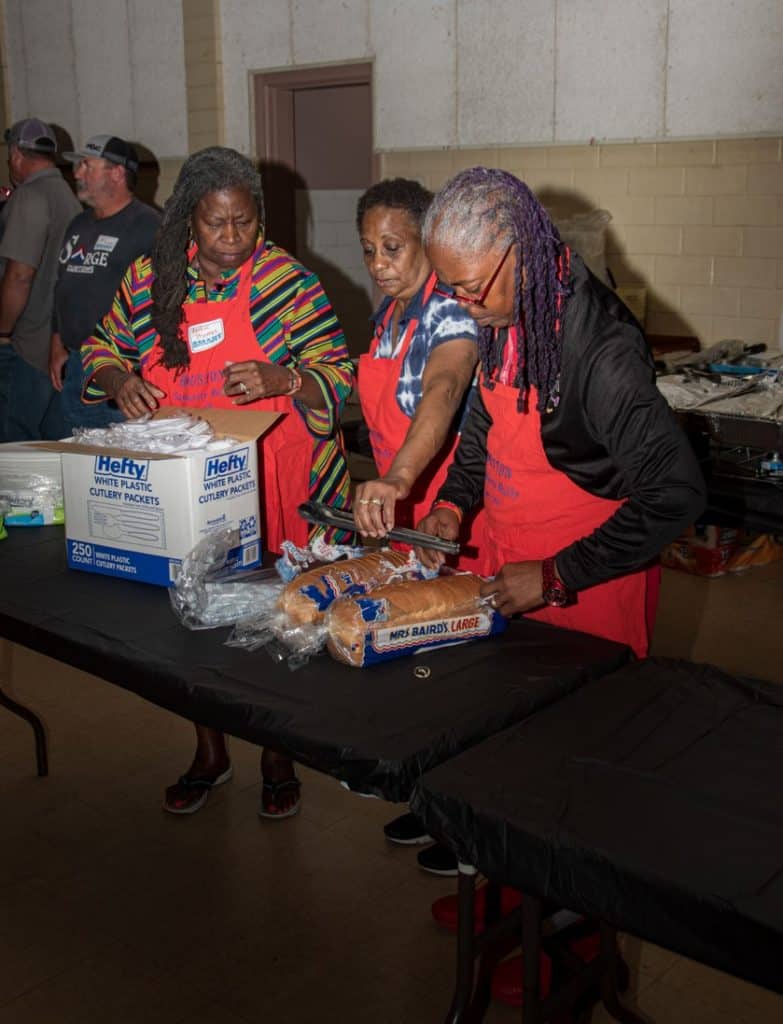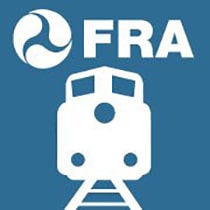The AFL-CIO Transportation Trades Department (TTD), of which the SMART-TD and -MD are members, released the following statement on behalf of rail unions regarding next steps in our push forward on reforms to a freight rail industry that is failing its workers and the American people:
“Across this nation, the American people have been awakened to the importance of freight rail workers to the national supply chain and our economy. More importantly, they have learned that the workers who are single-handedly responsible for the success of this industry have been mistreated while they’ve held these companies together through a pandemic and a historic supply chain crisis.
While rail unions successfully secured historic pay increases and other benefits for their workers with the support of President Biden, the railroads and their bought and paid-for allies in Congress refused to meet our demands for the basic human right of paid sick leave in bargaining. However, it should be made clear that the lack of paid sick leave is merely a symptom; so-called “Precision Scheduled Railroading” (PSR) and its cut-to-the-bone business model is the virus plaguing the rail industry and America’s freight commerce network. This virus exists for one reason, and one reason alone: corporate greed.
Let us be clear. The fight to guarantee paid sick leave for rail workers is not over and we will not back down until we win. We are committed to aggressively pursuing further action by both parties in Congress and the President, including the strategic use of legislation and Administration action, such as federal regulations and oversight, that will once and for all hold the rail industry accountable.
We stand united with workers and are grateful to the American people who have heard our call: in one of the most profitable industries in the richest country in the world, there is no excuse for rail workers to go another day without immediate action to correct this glaring injustice. But we must also remain focused on the underlying problems that remain for workers and the industry, which cannot be solved through paid sick leave policies alone.
The American people should know that while this round of collective bargaining is over, the underlying issues facing the workforce and rail customers remain. Over the last seven years, the freight railroad industry has moved to a business model that has cut their workforces to the bone, devastated worker morale by creating unsustainable working conditions across the industry, and put the safety of their workers and the American public at risk. This business model, which the industry termed “Precision Scheduled Railroading” (PSR), is not meant to improve service or reduce costs for shippers and consumers. Instead, it is meant to squeeze, with precision, every last penny of profit out of their operations for the benefit of a handful of ultra-wealthy investors who have contributed nothing themselves to the success of this industry.
Prior to PSR, if an employee needed to call in sick, they were nearly always allowed to “mark off,” and would be replaced by the next person on the roster. However, after cutting 30% of the workforce, there are no backups, and in an effort to keep trains moving, the rail industry needed a “stick” to keep employees in line. Management dusted off their rulebooks and decided to begin disciplining employees for missing work – a right they always retained but never used. If railroad workers spoke up, they risked being targeted. And in an era of mass furloughs, railroaders were rightfully worried that tomorrow would bring a pink slip.
The need for paid sick leave is only greater in this environment of strict discipline enforced by ruthless managers that were told to cut costs by any means. To most railroad managers, the solution was to furlough all possible employees, and rule over those remaining with an iron fist. Forced overtime went from being rare to a routine, multi-day occurrence. In fact, fatigue is now one the most dangerous issues facing employees. That is why the rail industry fought tooth and nail to deny paid sick leave to workers. They know that they cannot sustain their unsafe, greed-driven business model without putting the health and safety of workers on the line. In other words, denying workers sick leave isn’t an oversight but rather a core, intentional feature of the freight railroads’ business model.
In April, the railroads were called before the Surface Transportation Board (STB) for a three-day hearing on “Urgent Issues in Freight Rail Service.” The railroads were scolded not just by the STB and rail unions, but by rail customers across the spectrum. From grain shippers to chemical distributors, every witness pinpointed the same issue: that poor rail service is the result of years of irresponsible cost-cutting and the hostile work environment for remaining employees. And despite their public scolding and promises to make improvements, all of these metrics have continued to decline. Six months later, staffing levels are even lower than before, and freight embargoes of shippers are higher than ever.
And it is not just rail workers who are suffering. The freight railroads have created an economic crisis for all Americans by failing to meet the service needs of their customers. They have shamelessly crippled our supply chain, driving up prices for consumers on our most essential goods. What’s more, by forcing sick or fatigued workers to perform their jobs, they are knowingly risking public safety in our communities every single day. All of this for the sake of eking out a few extra dollars to further pad the pockets of their CEOs and Wall Street.
We will share our concerns about the freight rail industry’s behavior in greater detail before the Surface Transportation Board’s public hearing next Tuesday, Dec. 13, regarding Union Pacific’s refusal to accept goods for shipment because they’ve undermined their own capacity to ship them. We also applaud the Federal Railroad Administration for holding a public hearing next Wednesday, Dec. 14, on train crew size safety requirements, which is a fundamental safety issue and another example of the railroads willingly jeopardizing the welfare of their workers and safety to fuel more profits.
Ahead of these public hearings, rail workers will rally in front of the US Capitol on Tuesday, 12/13 from 1 to 3 p.m. to highlight the need to address all of these issues within the freight rail industry. Additional details will follow.
The wins for rail workers that resulted from a Presidential Emergency Board appointed by President Biden with further improvements facilitated by the Biden Administration are indeed historic. They include a 24% pay raise with back pay, which is the biggest wage increase in 45 years; a $5,000 bonus for every worker; an increase in travel disbursements for maintenance of way workers; no increase in health insurance copays or deductibles; no changes to two-person crew staffing; and more.
But rail workers, the unions who fight for them, and our partners in government must work together to hold this industry accountable for their actions and reconcile the long-term consequences of their greed. By prioritizing profits over people, they have failed workers, customers, and consumers. We need a freight rail system that works for the entire country. It is time for a reckoning.”
American Train Dispatchers Association (ATDA)
Brotherhood of Locomotive Engineers and Trainmen-IBT (BLET)
Brotherhood of Maintenance of Way Employes Division-IBT (BMWED)
Brotherhood of Railroad Signalmen (BRS)
International Association of Machinists and Aerospace Workers (IAM) District 19
International Brotherhood of Boilermakers, Iron Ship Builders, Blacksmiths, Forgers and Helpers (IBB)
International Brotherhood of Electrical Workers (IBEW)
National Conference of Firemen and Oilers, SEIU (NCFO, SEIU)
International Association of Sheet Metal, Air, Rail and Transportation Workers Railroad, Mechanical and Engineering Department (SMART MD)
International Association of Sheet Metal, Air, Rail and Transportation Workers Transportation Division (SMART TD)
Transportation Trades Department, AFL-CIO (TTD)
Transport Workers Union of America (TWU)
